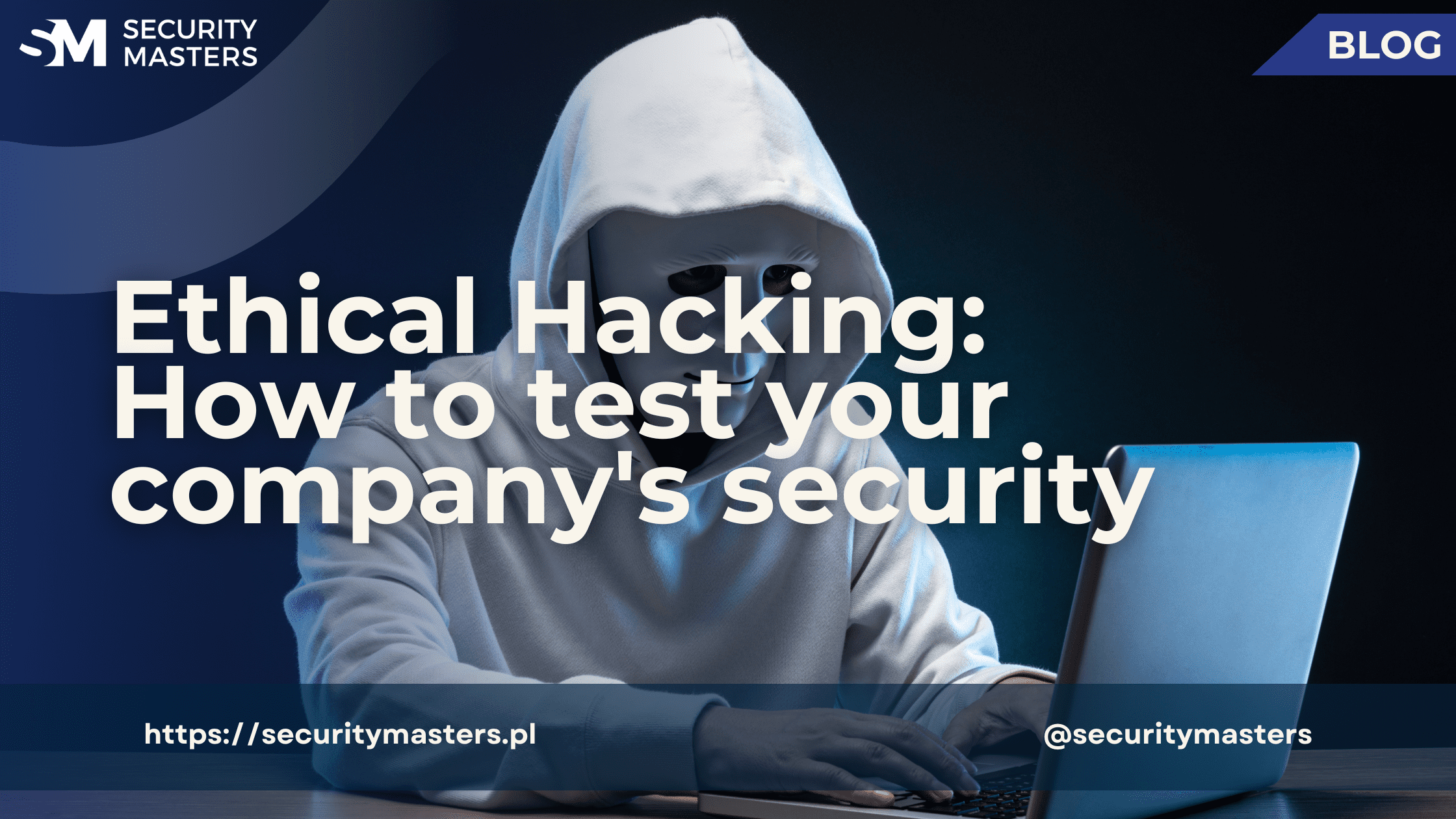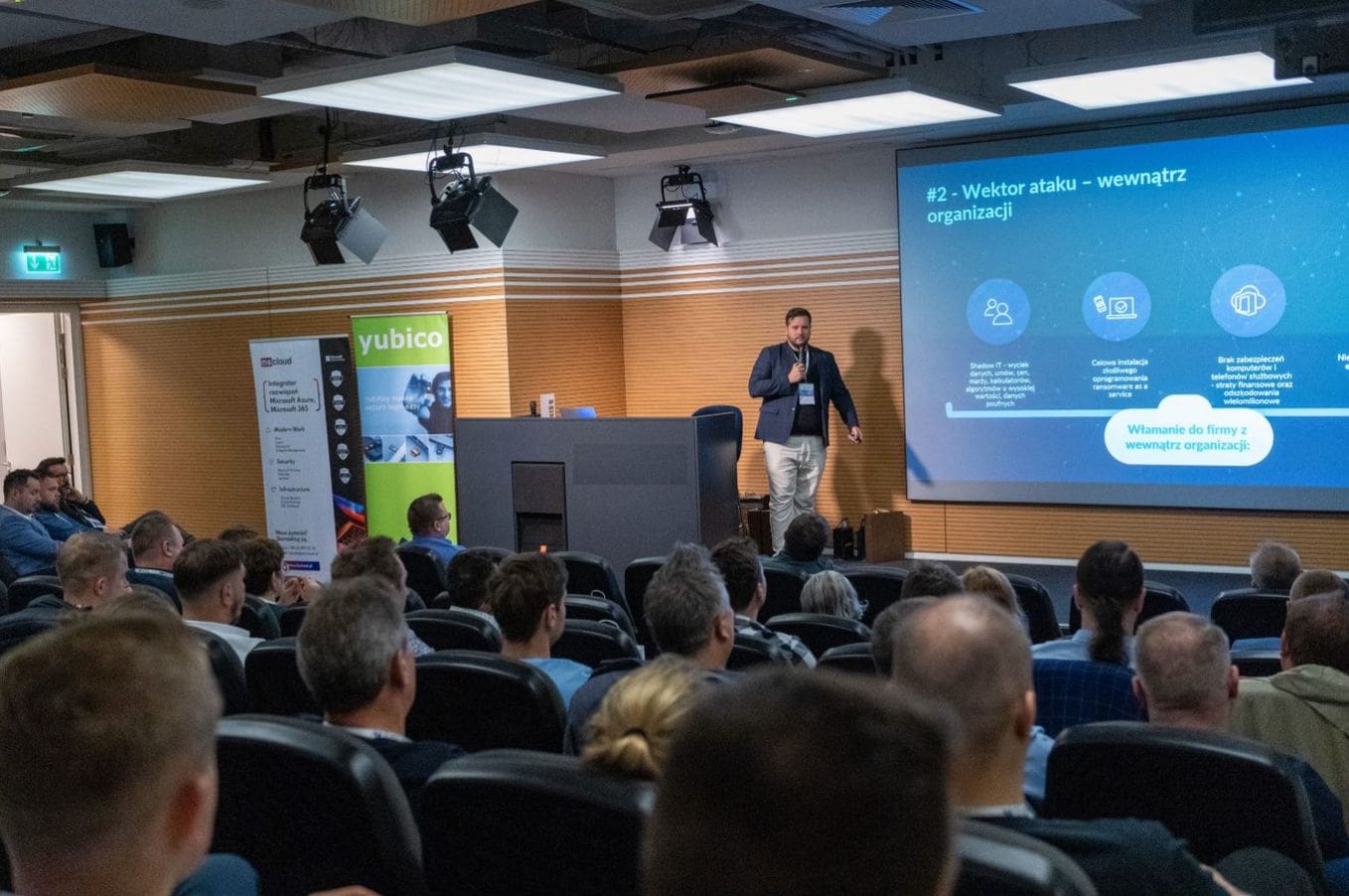Ethical Hacking: How to test your company’s security
What is ethical hacking?
Ethical hacking, also known as penetration testing, involves the legal testing of IT systems to identify and fix vulnerabilities before malicious individuals can exploit them. Ethical hackers, with the permission of the system owners, use the same techniques as potential attackers, but their goal is to improve security, not compromise it.
Preparing for Ethical Hacking
Before you begin any actions, it’s important to:
- Obtain permission: Ensure that the testing activities are approved by the board and all relevant parties. This is crucial for maintaining transparency and ethics. It’s not permissible to break the law.
- Define the scope of the tests: Clearly determine which systems, applications, and processes will be tested. This will help avoid accidental damage to important data and systems.
- Inform the HR and legal departments: Make sure the tests comply with local regulations and company policies.
Ethical Phishing and Spoofing:
Phishing:
- Simulated phishing campaigns: Use specialized software to conduct controlled phishing campaigns. The goal is to send emails that look like they are from well-known companies (e.g., banks, internet service providers) or from the IT department, asking to enter login data or click on a suspicious link. After the campaign, conduct an educational session explaining how to recognize such attack attempts and what the test results were.
- Spoofing:
- Spoofing attack simulation: Involves impersonating other devices or users on the network to extract data or gain unauthorized access. For example, you might try sending a request to employees from a fake email address that appears to belong to management, asking for confidential data. As with phishing, it is crucial to conduct an informational session after the test.
Ethical Hacking in Practice:
- Web Application Penetration Testing
- How to do it yourself:
- Vulnerability scanning tools: Use available tools to identify vulnerabilities in web applications, such as SQL injection, cross-site scripting (XSS), or improper session management.
- Automated vulnerability scanners: Integrate vulnerability scanners with the continuous integration/delivery (CI/CD) process to regularly check the application code for known vulnerabilities.
- Network Security Testing
- How to do it yourself:
- Network mapping tools: Use tools for mapping the network and identifying devices and services running on the network. This will help understand which points may be potentially vulnerable to attacks.
- Firewall and IPS/IDS testing: Regularly test the configuration of firewalls and intrusion prevention/detection systems (IPS/IDS) to ensure that improper traffic is correctly blocked or logged.
- Physical Security Audit
- How to do it yourself:
- Security inspections: Regularly conduct physical security inspections to ensure that all doors, locks, alarm systems, and CCTV cameras are functioning correctly.
- Physical penetration tests: Attempt to gain unauthorized access to buildings or rooms with critical IT infrastructure to check the effectiveness of physical access control measures.
- Configuration Management and Update Testing
- How to do it yourself:
- Automated configuration management tools: Use available tools for automatic system configuration management. This will allow for quick correction of inconsistencies and ensure that all systems are up-to-date.
- Regular configuration audits: Use configuration auditing tools to compare the current settings of systems with industry best practices or corporate security standards.
- Source Code Analysis
- How to do it yourself:
- Static code analysis tools: Integrate static code analysis tools into the software development process to automatically detect vulnerabilities in the code before deployment.
- Code reviews: Organize regular code review sessions with the development team to check and discuss the quality of the code and potential security issues.
Carrying out these activities requires proper preparation and knowledge but is accessible to organizations at different levels of advancement. The key to success is regularity and continuous improvement of security processes, as well as maintaining awareness and readiness for emerging threats in the dynamically changing cybersecurity landscape.
Want to learn more about the role of artificial intelligence in preventing cyber attacks? Check out our article: https://securitymasters.pl/en/the-role-of-artificial-intelligence-in-preventing-cyber-attacks/
Tools and Techniques:
- Using ethical hacking tools: To conduct tests, you can use tools such as Kali Linux, Metasploit, Wireshark, which offer advanced features for simulating phishing and spoofing attacks.
- Social engineering testing: This includes attempts to extract information from employees by phone or direct contact, simulating conversations with customers or business partners.
- Vulnerability analysis: Regularly use vulnerability scanners to identify new security flaws in software and system configurations.
Education and Response:
After conducting ethical hacking, it’s important to:
- Conduct educational sessions: Discuss the test results in detail with employees, indicating how they can better recognize and respond to attack attempts.
- Create an incident response plan: Ensure that employees know what to do when they detect an attempted attack.
- Regularly update security procedures: Cyber threats are constantly changing, so it’s important to continuously update security strategies and employee training.
Remember, the goal of ethical hacking is not only to find vulnerabilities but primarily to build a culture of security within the organization. Through education, awareness, and the right tools, it’s possible to significantly reduce the risk of cyber attacks, while protecting the company’s valuable resources.
What to remember to increase cybersecurity in the organization?
- Employee training: Organizing regular cybersecurity training sessions is crucial. Employees should be aware of threats and know how to secure their devices and data. Microsoft 365 offers identity and access management tools that can be used for education and enhancing security awareness.
- Compliance testing and risk management: Tools such as Microsoft Secure Score in Microsoft 365 allow for assessing the security status of the company, suggesting possible improvements.
- Using penetration testing tools: There are many tools available on the market that can help identify security vulnerabilities in systems. Using these tools, you can independently conduct basic security tests.
Hiring Specialists
Companies specializing in cybersecurity, such as Security Masters, offer ethical hacking services that provide deeper analysis and testing of IT systems. A team of experts thoroughly checks the company’s IT infrastructure, web applications, databases, and other critical elements, using advanced techniques and tools. The result of such an audit is a detailed report containing detected weaknesses and recommendations for their repair.
Why invest in ethical hacking?
- Protection against cyber attacks: Regular penetration tests allow for the identification and elimination of security vulnerabilities, minimizing the risk of hacker attacks.
- Compliance with regulations: Many industries require adherence to specific information security standards. Ethical hacking helps maintain compliance with such regulations.
- Reputation protection: Data breaches can harm the company’s reputation and customer trust. By investing in security, companies protect not only their data but also their image.
How can Security Masters help?
Security Masters offers comprehensive IT services and support in the field of cybersecurity, including penetration testing, security audits, and employee training. Our team of specialists uses the latest technologies and methodologies to provide companies with the best protection against digital threats. Thanks to cooperation with Microsoft and a deep understanding of products such as Microsoft 365, we can offer services tailored to the specific needs of each organization. More information about our services: https://securitymasters.pl/en/it-support-for-businesses/
Summary
Ethical hacking is an essential element of any company’s cybersecurity strategy. It allows not only for the detection and repair of potential weaknesses in IT systems but also for building trust and security in the digital world. Investing in professional services, such as those offered by Security Masters, and in employee education increases the organization’s resilience to cyber threats, ensuring its stable development.
SECURITY MASTER
Archiwalne wydarzenia
KONFERENCJE



